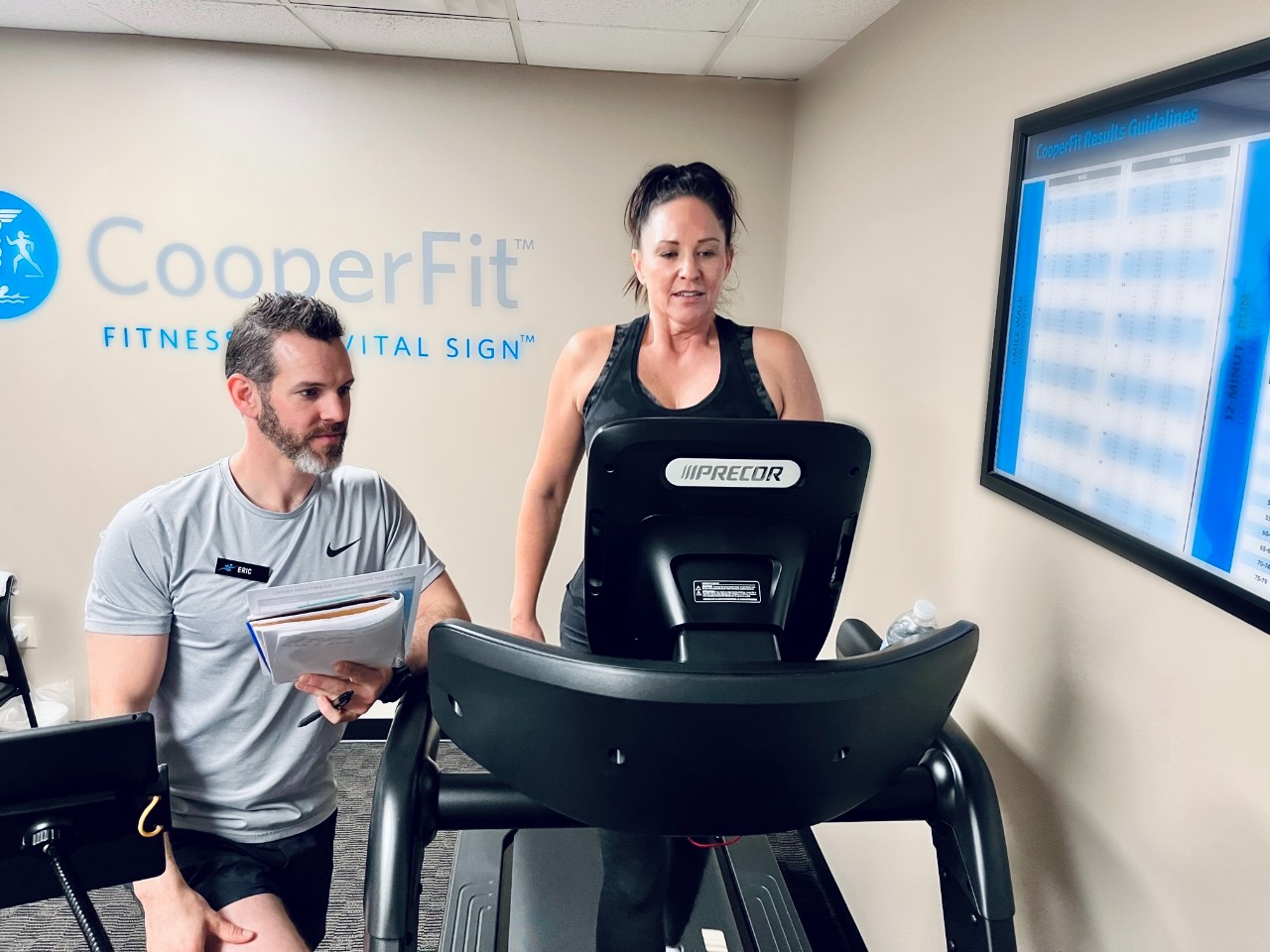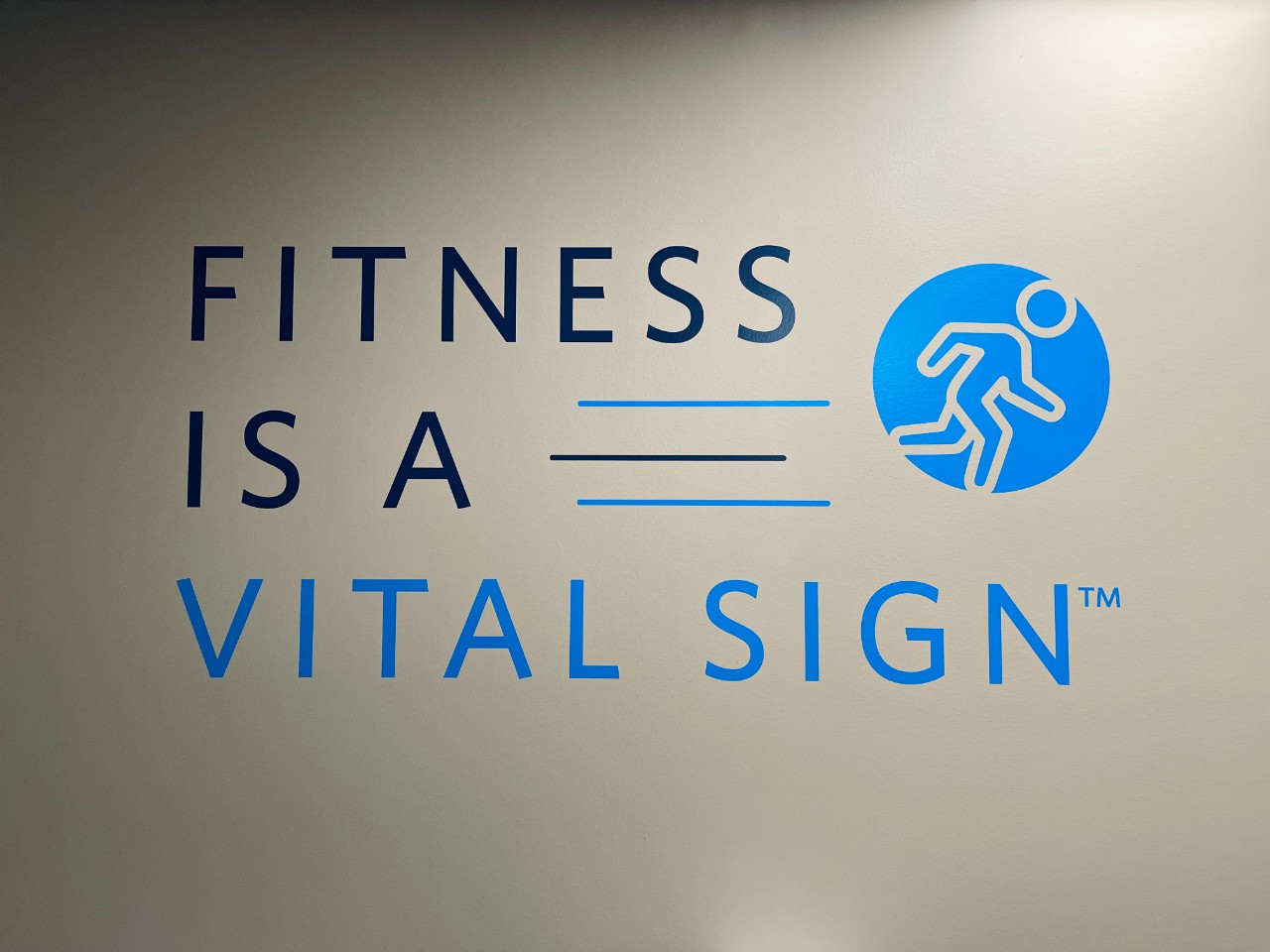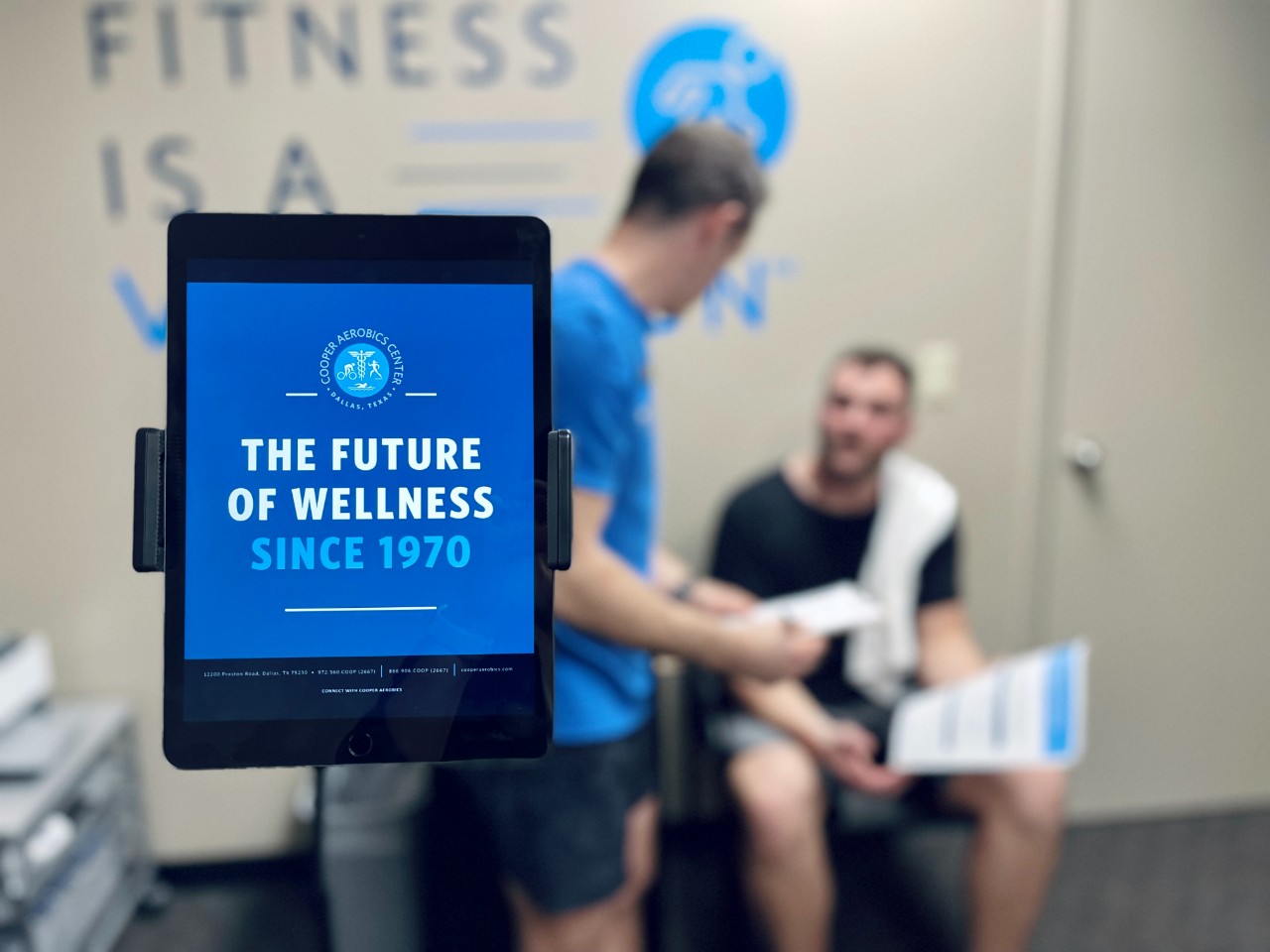Details
Nearly 50 years ago, Dr. Kenneth Cooper, the man who introduced aerobics to the world, had the foresight to establish The Cooper Institute and develop a rich repository of health-related data. Armed with this ever accumulating information, the Cooper Clinic can now definitively determine an individual’s cardiovascular fitness and the likelihood that a life will be adversely affected as a result of a “poor” or “very poor” number.
The good news... You don't have to travel to Dallas to take the test. You can find out your fitness vital sign at the Little Rock Athletic Club.
Additional Information
-
FAQs
What is cardiovascular fitness?
Cardiovascular fitness is an important component of overall physical fitness and is defined as the body’s maximal ability to use oxygen at the cellular level during exercise. Several terms are interchangeable with cardiovascular fitness such as aerobic power, aerobic capacity and maximal oxygen consumption. The latter term is often abbreviated max VO2, the maximal volume of oxygen the body can utilize per minute during exercise.
What is a cardiovascular fitness test?
The CooperFit cardiovascular fitness test provides an accurate and validated prediction of fitness level based on predicted max VO2. The CooperFit cardiovascular fitness test is not intended to be a diagnostic test for cardiovascular disease. Based on 50 years of research from Cooper Clinic, max VO2 is used to provide your level of cardiovascular fitness in one of six categories:
- Very Poor
- Poor
- Fair
- Good
- Excellent
- Superior
How is my cardiovascular fitness level calculated?
Results and fitness categories are calculated using your cardiovascular fitness test results in addition to your current age and gender. Your provider will select the test option that is most applicable for you, based on your current exercise routine:
- One-mile Walk — preferred test if you walk, jog, bike, swim or perform other types of aerobic exercise regularly or if you do not engage in regular aerobic physical activity.
- 12-minute Run, The Cooper Test — preferred test only if you run consistently 3-4 times per week. Running (not jogging) is defined as a sub-8-minute per mile pace. If you cannot sustain an 8-minute per mile running pace or faster for at least 2 miles on a consistent basis, it is recommended you perform the One-mile Walk test.
What is the significance of my cardiovascular fitness level?
Research demonstrates those in the top five categories of fitness have an increase in longevity of up to six years and a decrease in all-cause mortality of 58 percent. Your fitness level is a valuable piece of health information. In fact, Cooper Aerobics and the American Heart Association consider it a vital sign of health.
How do I prepare for my cardiovascular fitness test?
Refrain from caffeine, alcohol, tobacco, vaping and eating a heavy meal for at least 4 hours prior to testing. Do not exercise vigorously on the day of your test. Hydrate adequately before your appointment. Dress in comfortable, easy-to-move-in clothing. Wear proper footwear for physical activity. If you take heart medication such as beta blockers, ask your physician if you should refrain from taking it for one day prior to your test.
How do I improve my cardiovascular fitness level?
The first step in improving your cardiovascular fitness is to achieve consistency in exercise. Select an exercise that is meaningful and enjoyable to you. If you are beginning an exercise program, begin slowly and gradually increase your amount each week. You can perform your exercise all in one session or break it up into smaller segments throughout the day. For maximal health benefits, 150 minutes or more of moderate-intensity cardiovascular exercise or 75 minutes of vigorous-intensity cardiovascular exercise per week are recommended. Moderate-intensity is defined as 12-14 Rate of Perceived Exertion (RPE) and vigorous-intensity is defined as 15-18 RPE. Refer to the RPE scale here. It is best to spread out your minutes through the week instead of accumulating them all in just one day.
If after the test you find yourself in the "poor" or "very poor" category, we will be happy to provide you with a walking program as a starting point for improving your cardiovascular fitness.
When should I test again?
Twelve weeks is the recommended time between fitness tests. Keep in mind, it may take as long as 12-16 weeks to see an improvement in your cardiovascular fitness level. During this time, follow the exercise program given to you by your provider and track your progress. Ultimately, your target goal is to accumulate at least 150 minutes of moderate-intensity cardiovascular exercise or at least 75 minutes of vigorous-intensity cardiovascular exercise each week on a consistent basis.
-
Fee
For those participants that are covered by Cooper At Work through their employers, the test is free. For all others, the fee is $125. If you would like to purchase a MyZone heart rate monitor, you may do so for a substantially discounted rate of $70.
-
Research Papers
The Cooper Center Longitudinal Study has produced more than 700 papers published in peer-reviewed journals over the past 50 years. The ones key to proving fitness is a vital sign of health can be found here.


